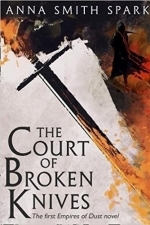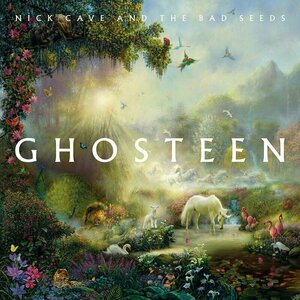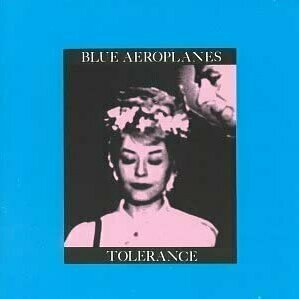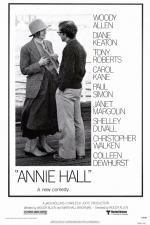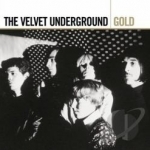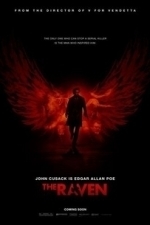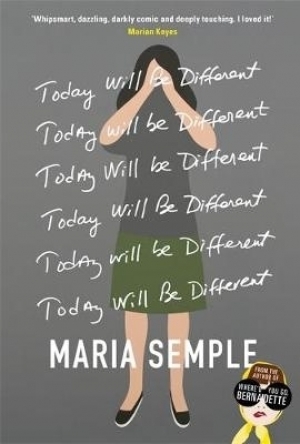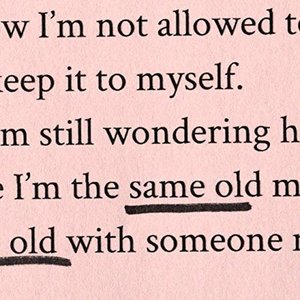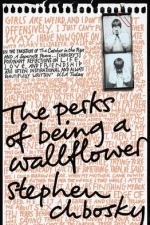Search
Search results
Ross (3284 KP) rated The Court of Broken Knives in Books
Aug 7, 2018
Finally, well executed, gritty literary fantasy
I had skimmed some reviews of this book after seeing glowing recommendations of it in different facebook groups. I was warned the tone of the narrative was off-putting and very different to the genre. I have read a few authors who try and put a more literary, almost poetic slant on the narrative in fantasy books and I always found it a bit flowery and took me out of the story.
Not so here. I'll admit the tone took me a couple of chapters to get to grips with, but I am so glad I stuck with it. The lyrical poetry contained within the narrative is so good that it adds to the story being told, it puts some emotion into the storytelling, something that is so sorely lacking from many books in third-person narrative.
Descriptions of people, places, feelings, events take on a whole new level of tangibility so rarely felt in fantasy fiction (without going down the Stephen King route of describing everything, and avoiding the Robert Jordan horse/riding dress description pratfalls).
The only place this becomes an issue is at times in the action scenes. On occasion I had to re-read a passage to work out what had actually happened - while I enjoyed the words I had struggled to pick up on what had occurred.
The story itself is not overly elaborate and unfolds before you with little warning. It felt like a natural, flowing journey than a series of events loosely tied together. We have the gritty mercenary company en route to unleash hell on the Empire, the great priestess of the God of living and dying (who has to sacrifice someone every few days to ensure life and death continue to operate properly) and we have the political manoeuvrings of the high lords within the Empirical council. This is all weaved together in the first third of the book to an excellent, surprising conclusion (in what many authors would have filled a whole book with ad nauseum), with the remainder of the book being a journey through wild country while everyone double-crosses everyone else.
This is of the grim-dark sub-genre, which basically means everyone is a bit of a shit, and bad things happen to nice people. There are no heroes here. There are characters you come to rout for (or despise) but you know it is wrong to do so as they are all so nasty and flawed in so many ways, like humanity itself.
Don't be expecting a happy ending!
Not so here. I'll admit the tone took me a couple of chapters to get to grips with, but I am so glad I stuck with it. The lyrical poetry contained within the narrative is so good that it adds to the story being told, it puts some emotion into the storytelling, something that is so sorely lacking from many books in third-person narrative.
Descriptions of people, places, feelings, events take on a whole new level of tangibility so rarely felt in fantasy fiction (without going down the Stephen King route of describing everything, and avoiding the Robert Jordan horse/riding dress description pratfalls).
The only place this becomes an issue is at times in the action scenes. On occasion I had to re-read a passage to work out what had actually happened - while I enjoyed the words I had struggled to pick up on what had occurred.
The story itself is not overly elaborate and unfolds before you with little warning. It felt like a natural, flowing journey than a series of events loosely tied together. We have the gritty mercenary company en route to unleash hell on the Empire, the great priestess of the God of living and dying (who has to sacrifice someone every few days to ensure life and death continue to operate properly) and we have the political manoeuvrings of the high lords within the Empirical council. This is all weaved together in the first third of the book to an excellent, surprising conclusion (in what many authors would have filled a whole book with ad nauseum), with the remainder of the book being a journey through wild country while everyone double-crosses everyone else.
This is of the grim-dark sub-genre, which basically means everyone is a bit of a shit, and bad things happen to nice people. There are no heroes here. There are characters you come to rout for (or despise) but you know it is wrong to do so as they are all so nasty and flawed in so many ways, like humanity itself.
Don't be expecting a happy ending!
Kirk Bage (1775 KP) rated Ghosteen by Nick Cave & The Bad Seeds in Music
Mar 3, 2020 (Updated Aug 6, 2020)
My intention was to listen to this twice through and then tell you what I thought about it. In the past, I have always admired Nick Cave more in theory than in practice. Finding his heavier touches a little too “noisy”. Typified by the 2004 release Abbatoir Blues / The Lyre of Orpheus, where I listened to the latter, gentler side over and over, and largely left the more raucous tracks on the former alone.
Because of this personal preference, I have ended up virtually listening to Ghosteen on loop for a full week, as it leans very definitely towards the softer side of his soul – at times almost ambient dreamscape, washing over you like tired thoughts just before sleep. And, often, that is what it became for me: a night album to drift away to.
It is an album about grief, regret, spirituality and humanism. There is a misconception that it is wholly inspired by the death of Cave’s son Arthur, but, in his own words, it was more the death of band member Conway Savage that allowed the themes and lyrics to become the work.
As always, it is Cave’s poetry that emerges as the backbone and soul of every song. The melodies wash over you, at times indistinguishable as separate tracks, and you begin to feel invited into a man’s heart and mind as he explores mortality, shifting between anger, acceptance, fear and hope, in a segue of sound that feels ultimately like a mood painting, defying criticism.
At times listening feels like an intrusion; like these thoughts are too personal to eavesdrop on. At other times, you feel taken by the hand and invited to look at something beautiful. If you allow yourself to be taken on this journey willingly, your empathy will be coaxed and encouraged, and it will be safe. Sadness is only one part of grief, seems to be the message, and it’s a message I relate to and adore.
Labels such as “art-rock” and “post-punk” get thrown at Cave, in futile efforts to pin him down. I think it best not to try. For me, he is truly one of a handful of musicians alive who can be called an artist without hyperbole. His work has texture and emotion that goes beyond how we normally judge music. Making it ok to not “like” a song, as long as it tells part of the story.
For sure his best work for quite a while. At times, so perfect it seems churlish to judge it at all.
Because of this personal preference, I have ended up virtually listening to Ghosteen on loop for a full week, as it leans very definitely towards the softer side of his soul – at times almost ambient dreamscape, washing over you like tired thoughts just before sleep. And, often, that is what it became for me: a night album to drift away to.
It is an album about grief, regret, spirituality and humanism. There is a misconception that it is wholly inspired by the death of Cave’s son Arthur, but, in his own words, it was more the death of band member Conway Savage that allowed the themes and lyrics to become the work.
As always, it is Cave’s poetry that emerges as the backbone and soul of every song. The melodies wash over you, at times indistinguishable as separate tracks, and you begin to feel invited into a man’s heart and mind as he explores mortality, shifting between anger, acceptance, fear and hope, in a segue of sound that feels ultimately like a mood painting, defying criticism.
At times listening feels like an intrusion; like these thoughts are too personal to eavesdrop on. At other times, you feel taken by the hand and invited to look at something beautiful. If you allow yourself to be taken on this journey willingly, your empathy will be coaxed and encouraged, and it will be safe. Sadness is only one part of grief, seems to be the message, and it’s a message I relate to and adore.
Labels such as “art-rock” and “post-punk” get thrown at Cave, in futile efforts to pin him down. I think it best not to try. For me, he is truly one of a handful of musicians alive who can be called an artist without hyperbole. His work has texture and emotion that goes beyond how we normally judge music. Making it ok to not “like” a song, as long as it tells part of the story.
For sure his best work for quite a while. At times, so perfect it seems churlish to judge it at all.
James Dean Bradfield recommended Tolerance by The Blue Aeroplane in Music (curated)
Simon Pegg recommended Annie Hall (1977) in Movies (curated)
Johnny Marr recommended track Foggy Notion by The Velvet Underground in Gold by The Velvet Underground in Music (curated)
Connor Sheffield (293 KP) rated The Raven (2012) in Movies
Apr 27, 2017
A brilliant crime thriller (4 more)
Gory
Connections to the work of Edgar Allan Poe
Great Cast
Watchable over and over again
Would love to know what happens in the end (1 more)
Not as exhilirating after the first watch
Quote the Raven, Nevermore.
First of all let me say this;
I am a poet and a writer, and my biggest inspiration as a writer has always been Edgar Allan Poe. I love the gothic horror, the tragedy, the macabre, and everything that makes Edgar Allan Poe the legend he is today.
With that said, let me tell you why I love this movie. It involves connections to some of Poe's greatest work, and not his poetry necessarily, it's actually more about his stories. Telltale Heart, Pit and the Pendulum and others that are all combined into the twisted mind of our antagonist who uses these stories to commit his crimes and leave evidence behind that only Poe himself would be able to figure out.
It's a brilliant crime thriller that delves into the mind of someone who is essentially Poe's biggest fan, but in a very dark and twisted way that gives us a fictional story about what happened during Poe's last days before he was found dead on a park bench. It's a known fact that Poe's last days remain a mystery and so this film had the opportunity to really play with some great ideas and they were executed brilliantly.
Speaking of execution this film is very grim and gory. One scene involving the story of The Pit and the Pendulum has us watch as a Pendulum drops lower and lower before slicing through a man's stomach like a warm knife through butter. It doesn't leave a lot to the imagination which gives this film some charm and makes it stand out from the rest of the Poe Film adaptations.
John Cusack plays the lengend himself, Edgar Allan Poe and brings a very interesting performance, that seems to suggest Poe thought himself as a higher intelligence to those around him, and he isn't shy to announce it.
Sharing the screen with Cusack, includes names such as Luke Evans who portrays Detective Fields, the detective I mentioned earlier that seeks Poe's assistance in the murder case. Brendan Gleeson portrays a very protective father named Charles Hamilton, who despises Poe being anywhere near his daughter Emily Hamilton, portrayed by Alice Eve. However there differences are put aside as the hunt for the missing Emily continues.
The story transitions well from scene to scene and story to story as each clue leads to the next, and eventually we discover the culprit who I shall not name here because I wish to leave the tension and suspense for you as you watch this film.
I am a poet and a writer, and my biggest inspiration as a writer has always been Edgar Allan Poe. I love the gothic horror, the tragedy, the macabre, and everything that makes Edgar Allan Poe the legend he is today.
With that said, let me tell you why I love this movie. It involves connections to some of Poe's greatest work, and not his poetry necessarily, it's actually more about his stories. Telltale Heart, Pit and the Pendulum and others that are all combined into the twisted mind of our antagonist who uses these stories to commit his crimes and leave evidence behind that only Poe himself would be able to figure out.
It's a brilliant crime thriller that delves into the mind of someone who is essentially Poe's biggest fan, but in a very dark and twisted way that gives us a fictional story about what happened during Poe's last days before he was found dead on a park bench. It's a known fact that Poe's last days remain a mystery and so this film had the opportunity to really play with some great ideas and they were executed brilliantly.
Speaking of execution this film is very grim and gory. One scene involving the story of The Pit and the Pendulum has us watch as a Pendulum drops lower and lower before slicing through a man's stomach like a warm knife through butter. It doesn't leave a lot to the imagination which gives this film some charm and makes it stand out from the rest of the Poe Film adaptations.
John Cusack plays the lengend himself, Edgar Allan Poe and brings a very interesting performance, that seems to suggest Poe thought himself as a higher intelligence to those around him, and he isn't shy to announce it.
Sharing the screen with Cusack, includes names such as Luke Evans who portrays Detective Fields, the detective I mentioned earlier that seeks Poe's assistance in the murder case. Brendan Gleeson portrays a very protective father named Charles Hamilton, who despises Poe being anywhere near his daughter Emily Hamilton, portrayed by Alice Eve. However there differences are put aside as the hunt for the missing Emily continues.
The story transitions well from scene to scene and story to story as each clue leads to the next, and eventually we discover the culprit who I shall not name here because I wish to leave the tension and suspense for you as you watch this film.
Rachel King (13 KP) rated Finding the Light of Jesus in Books
Feb 11, 2019
When I first started to read this book, I realized very quickly how simply written this book is. The first ten chapters read as if I were sitting in a therapy session with the author and she were talking to me. They are written without much emphasis on detail, and seemed to focus largely on how a person feels in regards to stress and depression. Though the author writes extensively on the light of Jesus, she does not quote a single Bible verse, though she attempts to paraphrase a few - without citations. The beginning and end of each of these ten chapters also contain a poem she wrote and calls prayers, though the poetry is badly written and has little resemblance to an actual prayer, in my opinion. Also scattered through the chapters are activities that the author recommends for the reader, such as journaling and answering questions.
The final chapter is actually a collection of prayers and reflections that the reader is supposed to follow over the course of seven days. This is followed by a section of "Conversations With Jesus" that focus on different topics such as anger, jealousy, being overwhelmed, and fear. This is followed by five pages in which she quotes a scripture from the New American Bible, and leaves a blank space for the reader to journal the answers to her questions about the scripture verse. This is followed by more of her prayers and a further 30 days of prayer and reflection.
Overall, the author presents a Jesus that is only concerned about a person's feelings, whom the author seems to believe that everyone has inside of him or her from birth. She further indicates that everyone goes to heaven, and Jesus' strongest quality is being a "light." No mention is made of the basic precepts of Bible-based Christianity, such as sin, salvation, and the resurrection of Jesus Christ. Instead she writes things that seem to contradict parts of scripture, such as stating that Jesus does not judge us and that we are the "light," as well as what I previously mentioned about everyone going to heaven. In the context of that paragraph, I almost expected the author to write that we are all Jesus. I also noticed while reading that nowhere does she ever refer to Him as Jesus Christ either. The entire book has a vague New Age feel, as many of the things Tuttle writes mimic the doctrine of a New Age Jesus.
The author, Cindy Tuttle, has a background of working in the mental health industry for more than twenty-five years. Based on what I have read in this book, I have no doubt that she is good at her job and finds great success with her patients, but I do not find this book of the same calibur.
The final chapter is actually a collection of prayers and reflections that the reader is supposed to follow over the course of seven days. This is followed by a section of "Conversations With Jesus" that focus on different topics such as anger, jealousy, being overwhelmed, and fear. This is followed by five pages in which she quotes a scripture from the New American Bible, and leaves a blank space for the reader to journal the answers to her questions about the scripture verse. This is followed by more of her prayers and a further 30 days of prayer and reflection.
Overall, the author presents a Jesus that is only concerned about a person's feelings, whom the author seems to believe that everyone has inside of him or her from birth. She further indicates that everyone goes to heaven, and Jesus' strongest quality is being a "light." No mention is made of the basic precepts of Bible-based Christianity, such as sin, salvation, and the resurrection of Jesus Christ. Instead she writes things that seem to contradict parts of scripture, such as stating that Jesus does not judge us and that we are the "light," as well as what I previously mentioned about everyone going to heaven. In the context of that paragraph, I almost expected the author to write that we are all Jesus. I also noticed while reading that nowhere does she ever refer to Him as Jesus Christ either. The entire book has a vague New Age feel, as many of the things Tuttle writes mimic the doctrine of a New Age Jesus.
The author, Cindy Tuttle, has a background of working in the mental health industry for more than twenty-five years. Based on what I have read in this book, I have no doubt that she is good at her job and finds great success with her patients, but I do not find this book of the same calibur.
Kristy H (1252 KP) rated Today Will be Different in Books
Feb 1, 2018
Eleanor wakes up with the resolution that today will indeed be different. She will be a better person, a better mother, and a better wife. She will pay more focused attention to her son, Timby. She will have sex with her surgeon husband, Joe. She will go to her poetry and yoga classes. She will wear real clothes. She will pleasantly lunch with a friend she doesn't quite care for. But it doesn't take long for Eleanor's plans to quickly derail, as a series of mishaps rapidly start to add up: Timby is sick, it appears as if Joe is no longer going to work (and lying about it), and Eleanor's lunch date isn't what it seems, either.
I may be the only person left on the planet who hasn't read [book:Where'd You Go, Bernadette|13526165] (sometimes I'm stubborn about reading "it" books, ok), so I cannot compare this novel to that one. That may be for the best. This is the second novel--in a row--that I contemplated just not finishing, and again, that is so rarely my style. This book felt like a slapdash series of paragraphs thrown together about a crazy woman whose motivations and actions made entirely no sense.
The book veers back and forth in time: while the main action occurs all in one day (the one Eleanor vows will be better), she flashes back to her past, telling the story of her childhood, a long and confusing saga with her sister, Ivy, and Ivy's husband, and how she met her own husband. She also covers her time as working as an animator. It all happens sort of randomly and often in a stream of consciousness. This occurs among the crazy, insane happenings of Eleanor's day, where she sets off a series of bizarre actions that-to me-made no sense and came across as completely irrational. She was not endearing, she was not a little silly: she was just weird and somewhat unhinged, and I'm honestly not sure how she was still allowed to care for poor Timby.
There were a few glimmers about the frustrations of modern motherhood and marriage in this novel, but most were buried by the bizarre ramblings and incoherence of the plot. Some plot pieces were never resolved, some just popped up for no reason, and some dragged on and on endlessly. Maybe I'm just not familiar with Semple's style, but I have to pass on this one.
<center><a href="http://justacatandabookatherside.blogspot.com/">Blog</a>; ~ <a href="https://twitter.com/mwcmoto">Twitter</a>; ~ <a href="https://www.facebook.com/justacatandabook/">Facebook</a>; ~ <a href="https://plus.google.com/u/0/+KristyHamiltonbooks">Google+</a></center>;
I may be the only person left on the planet who hasn't read [book:Where'd You Go, Bernadette|13526165] (sometimes I'm stubborn about reading "it" books, ok), so I cannot compare this novel to that one. That may be for the best. This is the second novel--in a row--that I contemplated just not finishing, and again, that is so rarely my style. This book felt like a slapdash series of paragraphs thrown together about a crazy woman whose motivations and actions made entirely no sense.
The book veers back and forth in time: while the main action occurs all in one day (the one Eleanor vows will be better), she flashes back to her past, telling the story of her childhood, a long and confusing saga with her sister, Ivy, and Ivy's husband, and how she met her own husband. She also covers her time as working as an animator. It all happens sort of randomly and often in a stream of consciousness. This occurs among the crazy, insane happenings of Eleanor's day, where she sets off a series of bizarre actions that-to me-made no sense and came across as completely irrational. She was not endearing, she was not a little silly: she was just weird and somewhat unhinged, and I'm honestly not sure how she was still allowed to care for poor Timby.
There were a few glimmers about the frustrations of modern motherhood and marriage in this novel, but most were buried by the bizarre ramblings and incoherence of the plot. Some plot pieces were never resolved, some just popped up for no reason, and some dragged on and on endlessly. Maybe I'm just not familiar with Semple's style, but I have to pass on this one.
<center><a href="http://justacatandabookatherside.blogspot.com/">Blog</a>; ~ <a href="https://twitter.com/mwcmoto">Twitter</a>; ~ <a href="https://www.facebook.com/justacatandabook/">Facebook</a>; ~ <a href="https://plus.google.com/u/0/+KristyHamiltonbooks">Google+</a></center>;
Bong Mines Entertainment (15 KP) rated Same Old - Single by SHY Martin in Music
Jun 25, 2019
SHY Martin (Sara Hjellström) is a singer-songwriter raised in the small town of Lerdala, Sweden. Not too long ago, she released a lyric video for her “Same Old” single.
“My whole life changed after I moved. I lived the dream he’d always supported, and I got to see the world we’d both dreamt of. For a long time, I thought I wasn’t allowed to be hurt or miss him because I was the one who left. Today, I know that sometimes it’s just as hard to be the one who has to leave, if not harder.” – SHY Martin
‘Same Old’ tells an elegant tale which touches on a bittersweet personal story of SHY Martin.
Apparently, not too long ago, she moved away to music school, and in doing so, she had to break up with a supportive lost love.
‘Same Old’ contains a relatable storyline, ear-welcoming vocals, and lavish instrumentation scented with an electro-pop aroma.
Also, the Hampus Hjellström-directed audiovisual showcases moments from SHY Martin’s recent European tour.
‘Same Old’ follows the April release of SHY’s “Out of My Hands” single. Also, the likable tune follows in the success of her debut EP, entitled, “Overthinking”, which has amassed a collective 100M+ Spotify streams.
The impactful EP was driven by the singles “Forget To Forget”, “Good Together”, and “Just A Little Longer”.
Not too long ago, SHY established herself as a songwriter, which led to a co-write and feature vocals on Mike Perry’s “The Ocean” single.
SHY Martin recorded the vocals in one-take in her home wardrobe after a tonsil operation. She wrote the song with longtime Swedish songwriting partner, SHY Nodi, whom she has written several other songs with.
The track won Spotify Sweden’s Most Streamed Song of the Year with a groundbreaking 550M+ streams.
Since then, Martin’s songwriting catalog has gone on to generate 2.5 billion Spotify streams.
Her credits include “First Time” by Kygo ft. Ellie Goulding, “(Not) The One” by Bebe Rexha, “All We Know” by The Chainsmokers, “I Wanna Know” by NOTD (ft. Bea Miller), as well as songs for Jess Glynne, Astrid S, and ALMA, among others.
“I was never good at talking about my feelings so I wrote them down instead. When I felt sad, me and my mum wrote letters to each other about it. So expressing myself through songs came pretty naturally for me.” – SHY Martin
SHY Martin began writing songs and poetry in her youth as a means of self-expression. After winning a music contest at her school at age 17, she signed with EMI for a period though ultimately decided to go independent.
Recently, she just wrapped up her first European headline tour, which traversed 14 cities.
“My whole life changed after I moved. I lived the dream he’d always supported, and I got to see the world we’d both dreamt of. For a long time, I thought I wasn’t allowed to be hurt or miss him because I was the one who left. Today, I know that sometimes it’s just as hard to be the one who has to leave, if not harder.” – SHY Martin
‘Same Old’ tells an elegant tale which touches on a bittersweet personal story of SHY Martin.
Apparently, not too long ago, she moved away to music school, and in doing so, she had to break up with a supportive lost love.
‘Same Old’ contains a relatable storyline, ear-welcoming vocals, and lavish instrumentation scented with an electro-pop aroma.
Also, the Hampus Hjellström-directed audiovisual showcases moments from SHY Martin’s recent European tour.
‘Same Old’ follows the April release of SHY’s “Out of My Hands” single. Also, the likable tune follows in the success of her debut EP, entitled, “Overthinking”, which has amassed a collective 100M+ Spotify streams.
The impactful EP was driven by the singles “Forget To Forget”, “Good Together”, and “Just A Little Longer”.
Not too long ago, SHY established herself as a songwriter, which led to a co-write and feature vocals on Mike Perry’s “The Ocean” single.
SHY Martin recorded the vocals in one-take in her home wardrobe after a tonsil operation. She wrote the song with longtime Swedish songwriting partner, SHY Nodi, whom she has written several other songs with.
The track won Spotify Sweden’s Most Streamed Song of the Year with a groundbreaking 550M+ streams.
Since then, Martin’s songwriting catalog has gone on to generate 2.5 billion Spotify streams.
Her credits include “First Time” by Kygo ft. Ellie Goulding, “(Not) The One” by Bebe Rexha, “All We Know” by The Chainsmokers, “I Wanna Know” by NOTD (ft. Bea Miller), as well as songs for Jess Glynne, Astrid S, and ALMA, among others.
“I was never good at talking about my feelings so I wrote them down instead. When I felt sad, me and my mum wrote letters to each other about it. So expressing myself through songs came pretty naturally for me.” – SHY Martin
SHY Martin began writing songs and poetry in her youth as a means of self-expression. After winning a music contest at her school at age 17, she signed with EMI for a period though ultimately decided to go independent.
Recently, she just wrapped up her first European headline tour, which traversed 14 cities.
Gloria (27 KP) rated The Perks of Being a Wallflower in Books
Jul 18, 2017
An Impactive Read
In all honesty, I expected to dislike Perks. So, I confess to a little discomfiture at the realization that I don’t hate this book. I don’t even dislike it. I’ll push the boat right out and say, I was rather moved by this story.
Being Charlies' Dear Friend is what engrossed me the most. I didn't realize I was feeling like his "Dear Friend" until almost the end of the book. He makes you feel part of the story. He involves you, and this is to admire from the author. Not only is it engaging in that form, but it seems to offer a sense of connection, understanding, and honesty about things left unspoken, or whispered behind hands and closed doors.
This book speaks to the sense of alienation that many teens experience. As well as the questions of who they are and where they belong. Charlie has become a response to – and I mean no disrespect by this, as I was/am a voice in this – a collective, plaintive cry of “nobody understands me." He proves to be understanding and is what makes him likable as well as the read.
The book tackles some of the issues and content that may seem less groundbreaking now, as opposed to when it was first published. But, I think it’s fair to say that they still resonate with readers. Successfully captures the way these topics are internalized by the protagonist, and it’s evidently a voice that continues to engage and move its more recent audience. Basically, it’s not strictly the topics that appeal, so much as the manner in which they’re approached and discussed. That I did appreciate, and what ultimately caused me to like this book, was how accurately Charlie’s experiences with anxiety and depression were presented. Anxiety is an incredibly frightening and isolating condition, and I think this book communicates that very truthfully. The sensation of being a spectator of life, rather than a participant in it, is all too relevant and close-to-home for many who have experienced a mental illness in some form.
I found Chobsky’s characterization another of the highlights of this book. From Charlie himself as the narrator, through the supporting cast, I felt that I knew who these people were, that they were real. I am quietly appreciative of this book, and the powerful, unique experience of reading it.
As a tribute:
Dear Charlie,
I didn't expect to learn from you as much as I have. You showed me that no matter what happens, what we experience, we always have a right to feel the way we feel, just because. You showed me the purity of feelings, the beauty of thoughts, generosity of love, and warmth of friendship. You made me appreciate books and poetry more, and see the impact they have on people's lives. For that, you will always hold a special place in my heart.
-Gloria
Being Charlies' Dear Friend is what engrossed me the most. I didn't realize I was feeling like his "Dear Friend" until almost the end of the book. He makes you feel part of the story. He involves you, and this is to admire from the author. Not only is it engaging in that form, but it seems to offer a sense of connection, understanding, and honesty about things left unspoken, or whispered behind hands and closed doors.
This book speaks to the sense of alienation that many teens experience. As well as the questions of who they are and where they belong. Charlie has become a response to – and I mean no disrespect by this, as I was/am a voice in this – a collective, plaintive cry of “nobody understands me." He proves to be understanding and is what makes him likable as well as the read.
The book tackles some of the issues and content that may seem less groundbreaking now, as opposed to when it was first published. But, I think it’s fair to say that they still resonate with readers. Successfully captures the way these topics are internalized by the protagonist, and it’s evidently a voice that continues to engage and move its more recent audience. Basically, it’s not strictly the topics that appeal, so much as the manner in which they’re approached and discussed. That I did appreciate, and what ultimately caused me to like this book, was how accurately Charlie’s experiences with anxiety and depression were presented. Anxiety is an incredibly frightening and isolating condition, and I think this book communicates that very truthfully. The sensation of being a spectator of life, rather than a participant in it, is all too relevant and close-to-home for many who have experienced a mental illness in some form.
I found Chobsky’s characterization another of the highlights of this book. From Charlie himself as the narrator, through the supporting cast, I felt that I knew who these people were, that they were real. I am quietly appreciative of this book, and the powerful, unique experience of reading it.
As a tribute:
Dear Charlie,
I didn't expect to learn from you as much as I have. You showed me that no matter what happens, what we experience, we always have a right to feel the way we feel, just because. You showed me the purity of feelings, the beauty of thoughts, generosity of love, and warmth of friendship. You made me appreciate books and poetry more, and see the impact they have on people's lives. For that, you will always hold a special place in my heart.
-Gloria
